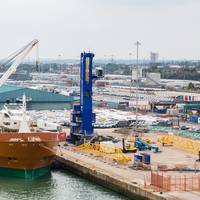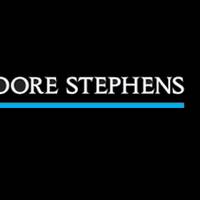BPA Welcomes Infrastructure Funding Scheme

The British Ports Association has welcomed the announcement by the UK Government that there will be a new grants scheme for infrastructure modification at UK ports should there be a ‘no-deal’ Brexit but has stated a deal was the best way to avoid potential disruption at ports.The UK’s Department for Transport is to introduce its £10 million (about $12.17 million) Port Infrastructure Resilience and Connectivity Fund for English Ports scheme in the run up to the Brexit date of October…
Moore Stephens Highlights Potential Tax Issues for Shipping
As part of the Government’s drive to encourage voluntary compliance with the tax rules, it will legislate to introduce a new requirement that large businesses publish their tax strategies as they relate to or affect UK taxation, as well as a special measures regime to tackle businesses that persistently engage in aggressive tax planning and a framework for co-operative compliance. The Government has introduced legislation in order to counter two specific tax avoidance schemes involving capital allowances and leasing, which involve companies artificially lowering the disposal value of plant and machinery for capital allowances purposes. It is also introducing a new penalty of 60% of tax due in all cases successfully tackled by the general anti-abuse rule.
Moore Stephens to Make Representation on Tonnage Tax Changes

International accountant and shipping consultant Moore Stephens is to make representation to Her Majesty’s Revenue & Customs in connection with recently issued draft revised guidance in respect of the U.K. tonnage tax regime, some of which it considers to be unhelpful. Moore Stephens tax partner Sue Bill said, “None of the changes are fundamental. Indeed, some of them are helpful, for example the revised comments regarding the circumstances in which a tonnage tax company is regarded…
UK Clamp Down on North Sea Drilling Tax Holiday
A planned change in the way Britain taxes North Sea drillers exposes the loophole in a system that allowed an industry with annual revenues of 2 billion pounds to pay almost no corporation tax for two decades, prompting accusations that the UK tax authority is falling down on the job. The change, announced by Finance Minister George Osborne in March, caps the amount a UK company can deduct from profit for leasing drilling rigs from an overseas unit in the same group. The rig-leasing units are typically based in countries where their income is taxed lightly or not at all. A Reuters review of company accounts, shipping registers and other company statements…
Moore Stephens Urges Changes to UK Tonnage Tax
International accountant and shipping adviser Moore Stephens has made representations to Her Majesty’s Revenue & Customs (HMRC) about changing the way in which the written-down values of vessels are calculated under the U.K. tonnage tax rules, which it considers are not realistic in terms of their interaction with the capital allowances regime. Moore Stephens tax partner Sue Bill said, “Where a company exits tonnage tax other than on the expiry of an election, and still owns ships, unless a ship falls within the definition of a ‘long-life asset’, its cost for capital allowances purposes is written down broadly as if the company had claimed capital allowances at 25 percent on a reducing balance basis for each year that it owned the ship.
Security Deposit Interest Ring-fenced Under Tonnage Tax
International accountant and shipping adviser Moore Stephens has welcomed a decision by the U.K. First Tax Tribunal that interest received on security deposits relating to loans taken out to buy ships within tonnage tax is not taxable. HMRC had argued that the interest income was outside tonnage tax as it related to the purchase of ships by London-based bulk and chemical tanker operator Euroceanica (U.K.) Limited, which was not a trading activity for the purposes of the tonnage tax legislation. It had further maintained that the giving of a security deposit was not a ‘necessary and integral’ part of the activity of operating ships as it was not a mandatory or “necessary” part of ship financing.
UK Statutory Residence Test Does Away with Grey Areas
International accountant and shipping adviser Moore Stephens says the introduction by the UK of a statutory residence test will bring much greater certainty to an area previously decided largely on the basis of case law and government practice. The UK is introducing the statutory residence test with effect from 6 April, 2013. Gill Smith, a tax partner with Moore Stephens, explains, “At present, there is no statutory definition of residence, but rather case law and HMRC practice. Under the new test, individuals will always be resident if they spend 183 days in the UK. As is the case now, a day counts if the individual is in the UK at midnight. Automatic residence is also achieved if individuals are working in the UK full-time or, broadly, have their only home there.
Moore Stephens calls for EU tonnage tax stability

International accountant and shipping adviser Moore Stephens has called for stability for European tonnage tax regimes now that the EC has begun its review of EU State Aid Guidelines to Maritime Transport. The start of the EC’s review of the EU State Aid Guidelines to Maritime Transport was announced on 14 February 2012. These guidelines cover European tonnage tax regimes as well as other state aid to the maritime sector. The EC has published a detailed and very comprehensive questionnaire regarding these state aid guidelines…
Moore Stephens Welcomes UK Tonnage Tax Revision

Accountant and shipping adviser, Moore Stephens, has welcomed the decision of Her Majesty’s Revenue & Customs (HMRC) to revise, as promised, its UK Tonnage Tax Manual to at least partly restore, on an interim basis, the pre-2009 interpretation of the strategic and commercial management tests. Moore Stephens has been working for some time with the shipping industry, and in particular with the Chamber of Shipping, in campaigning for HMRC to reconsider its 2009 reinterpretation of the tonnage tax rules.
Moore Stephens: HMRC May Rethink Tonnage Tax Changes

Moore Stephens, understands that Her Majesty’s Revenue & Customs (HMRC) has agreed to re-examine, in consultation with the shipping industry, its earlier intention to unilaterally reinterpret the UK Tonnage Tax rules to the potential detriment of many shipowners. Widely disputed changes based on unspecified ‘legal advice’ were set out in HMRC’s tonnage tax manual in September 2009. These focused in particular on a reinterpretation of the strategic and commercial management tests that are fundamental to qualification for the tonnage tax regime.
Moore Stephens Calls on HMRC to Consult

Leading accountant and shipping adviser, Moore Stephens says companies operating within UK tonnage tax could consider leaving the UK, as a result of HMRC’s decision to unilaterally reinterpret the regime rules. Sue Bill, a tax partner with Moore Stephens, says, “Given the substantial increase in the UK fleet since 2000, it is widely considered that UK tonnage tax has been a success. HMRC’s decision to reinterpret the legislation results from comments in the 2004 EU guidelines on state aid to maritime transport.
Moore Stephens Warns: UK Shippers Review Finances
Ahead of the imminent withdrawal of a concession relating to the application of transfer pricing rules to loans made to companies in the UK tonnage tax scheme, accountant and shipping industry adviser Moore Stephens has urged companies who may be adversely affected to review their financing arrangements and to eliminate where possible any loans from UK companies to connected UK tonnage tax companies. The UK transfer pricing rules apply to transactions between a UK company and any other entity under common control. They apply to transactions between UK companies, including transactions with UK tonnage tax companies. They also apply to transactions across the tonnage tax ring-fence. However, whether or not they apply will depend on the size of the group.
EU Flagging Rules to be Implemented in UK Tonnage Tax
Moore Stephens has warned that an announcement made this week by the U.K. Government could mean that shipowners within the U.K. tonnage tax regime will find that some vessels owned or operated after 1st April, 2008, and not registered under an EU flag, are outside the tonnage tax regime. The tonnage tax group or company’s fleet contains a lower proportion of EU Member State- registered tonnage than on 17th January 2004 or, if later, the end of the first period when it entered tonnage tax. The Government has now announced that the financial year 2008 will be specified as a financial year where the proportion of vessels within the UK tonnage tax regime registered under an EU flag has reduced on average in the preceding three calendar years…
Changes to UK tonnage Tax Unwelcome for Some
Shipping accountant Moore Stephens has warned that new EC requirements will lead to unwelcome changes to the UK tonnage tax regime from April 2008. Sue Bill, a tax partner with Moore Stephens, said, “The good news is that UK tonnage tax will remain as a stable and robust regime, as the changes will affect relatively few shipowners. Also, the UK government seems to be trying to ensure that the required amendments will be implemented as reasonably as possible. “But the changes will nevertheless be very disappointing for affected shipowners who have made a ten-year commitment to tonnage tax. · vessels providing transport in connection with services at sea such as cable laying, diving support, research vessels etc will no longer qualify for tonnage tax.





